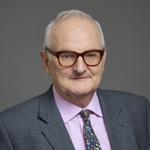Science: Education
(asked on 11th December 2017) - View SourceQuestion to the Department for Education:
To ask Her Majesty's Government what plans they have to ensure that school science practical classes are funded to a level sufficient to (1) stimulate school pupils, and (2) meet the requirements set by the examination boards.
The government is committed to improving the quality of science education, including making sure pupils experience practical science. A number of programmes provide support to science teachers and technicians to improve science teaching, including support to deliver practical work. These programmes include the national network of ‘Science Learning Partnerships’, incorporating support for schools to improve the take up of GCSE triple science, and the ‘Stimulating Physics Network’.
The latest provisional data on GCSE entries in England shows that 91.2% of pupils sat science GCSEs in 2017, up from 86.8% in 2016. There was also an increase in the number of A level entries in science subjects in England, with 2017 provisional data showing that there were 134,105 entries in physics, chemistry and biology A levels, up from 130,787 in 2016.
We are introducing the national funding formula from 2018-19 so that, for the first time, school funding will be distributed according to a formula based on the individual needs and characteristics of every school in the country. This is supported by a significant extra investment of £1.3 billion across 2018-19 and 2019-20, over and above the budget announced at the 2015 spending review.
Core funding for schools and high needs will rise from almost £41 billion in 2017-18 to £42.4 billion in 2018-19 and £43.5 billion in 2019-20. This will allow us to maintain school and high needs funding in real terms per pupil for the next two years. It is for schools to determine how much of their funding is spent on practical science.

